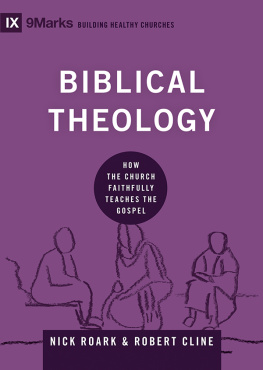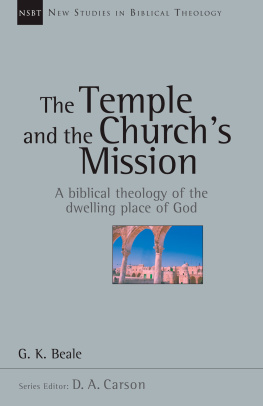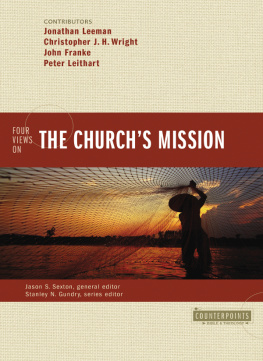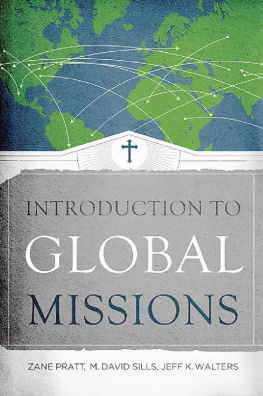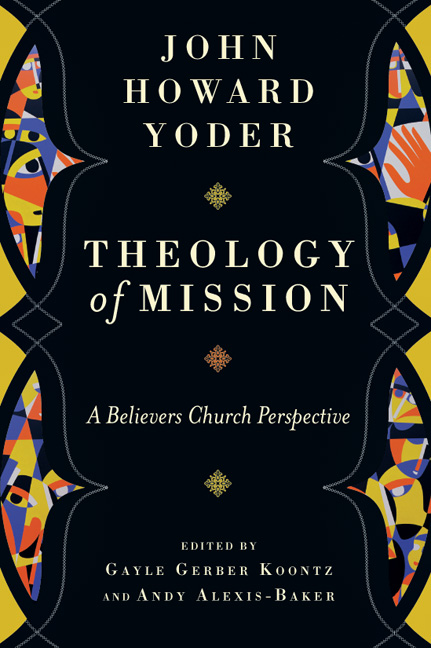InterVarsity Press
P.O. Box 1400,
Downers Grove, IL 60515-1426
World Wide Web:
2014 by Gayle Gerber Koontz and Andy Alexis-Baker
All rights reserved. No part of this book may be reproduced in any form without written permission from InterVarsity Press.
InterVarsity Pressis the book-publishing division of InterVarsity Christian Fellowship/USA, a movement of students and faculty active on campus at hundreds of universities, colleges and schools of nursing in the United States of America, and a member movement of the International Fellowship of Evangelical Students. For information about local and regional activities, write Public Relations Dept., InterVarsity Christian Fellowship/USA, 6400 Schroeder Rd., P.O. Box 7895, Madison, WI 53707-7895, or visit the IVCF website at www.intervarsity.org .
Scripture quotations, unless otherwise noted, are from the New Revised Standard Version of the Bible, copyright 1989 by the Division of Christian Education of the National Council of the Churches of Christ in the USA. Used by permission. All rights reserved.
The Afterword, As You Go, by John Howard Yoder was originally published by Herald Press, 1961. Used by permission.
Cover design: David Fassett
Images:
abstract painting: Ordered by Ron Waddams. Private Collection, The Bridgeman Art Library.
Vintage labels: aleksandar velasevic/iStockphoto
ISBN 978-0-8308-7193-3 (digital)
ISBN 978-0-8308-4033-5 (print)
Contents
Editors Preface
In the past half century many Christians have become skeptical about Christian missionary efforts. Western missionary organizations are struggling more than ever to meet their budgets as donations wane. Missiology programs have a hard time attracting North American students. Ask people what first comes to mind when they think of missions, and one is likely to hear words such as colonialism, violence and disrespect. All of this is understandable. For many years Christian mission was intertwined with the march of Western empires across the rest of the world. Missionaries were sometimes the first wave of a long process that undermined other cultures and peoples. Scholarly books document this process. Popular fiction, such as Chinua Achebes Things Fall Apart, vividly narrates the way Christian missionaries bulldozed their way through non-Western cultures and environments to bring people their Western understanding of God and the church. The good news was too often intertwined with the violent machines of conquest.
Anyone concerned about peace and justice has to wrestle with the legacy of missions in the long advance of Western imperialism. No ethicist or theologian from the Mennonite tradition can avoid it. Although John Howard Yoder is best known for his work on issues of war and peace, the topic of this booktheology of missionpreoccupied him as a scholar, teacher, missionary and ecumenical dialogue partner for most of his life. He sought to articulate a theological basis for a free church or believers church approach to Christian mission in which sharing the gospel message, disentangled from Western industry and militarism, could become a profound practice of Christian peacemaking, a vessel for Gods saving work.
About This Book
From 1964 to 1983, Yoder taught a course on theology of mission at Associated Mennonite Biblical Seminaries (AMBS).
Like the war, peace and revolution lectures, Yoder thought that the theology of mission lectures might someday be edited for publication as a book. In one memo he wrote in 1973, Yoder hinted that he might want to revise the lectures for publication at a future date, saying an informal transcription would be a separate question from whether a more polished version should be created which would be visible for commercial publication either as a unit or in small segments. He went on to indicate that if he could get a sabbatical from teaching he would be willing to work on writing a book on mission based on the lectures.
In 1984, Yoder left AMBS and began teaching full time at Notre Dame, where he no longer had the opportunity to teach about mission. The tapes were stored away in a cellar at AMBS and forgotten. In 2006 Gayle began teaching a course on Yoders theological legacy. Several years later, when Wilbert Shenk was invited to class to reflect on Yoders contributions to mission theology and practice, Shenk mentioned that some former students had told him how formative Yoders course on theology of mission had been in their lives and ministry. Shenk thought there might be tapes of the lectures somewhere. After a number of months of fruitless searching, the director of the AMBS library finally discovered the lost tapes in a box in the basement of the seminary.
Immediately after finding the recordings, Andy set to work transcribing the lectures so the two of us could see whether they were worth publishing in book format. At the same time we contacted the Yoder family representative and the AMBS Institute of Mennonite Studies; both encouraged us to proceed with the project. Once we had transcripts in hand, we consulted with several missiologists and mission staff persons and were encouraged by the enthusiastic response we received. We set to work editing the chapters.
What We Have Done to the Text
We have edited the course lectures significantly. The transcriptions were, obviously, a replica of the spoken form in which Yoder delivered the lectures. Although we wanted to preserve the more informal, oral quality of Yoders voice in the final manuscript, we repaired awkward or unclear syntax, changed passive to active voice where possible, attended to consistency in verb tense, and reorganized for clarity some of the material that we believe Yoder himself would have done in preparing a manuscript for publication. We also added a number of transitional sentences or phrases where we thought such things were needed in a written manuscript. Finally, we reduced the length of these lectures by carefully removing repetitious or unnecessary paragraphs, sentences, phrases or words and by removing most of the class discussion material that followed the lectures.
Because these chapters were delivered as lectures over several days, Yoder usually summarized the previous days lecture to remind students what they had heard. If these summaries were done well, we sometimes used them in place of something he said in his lecture. Usually, however, these summaries were not needed and interrupted the flow of the written text; these we deleted. In addition, Yoder began many class sessions with prayer. We removed the prayers because in his course notes he clearly stated that he believed prayers should be spoken rather than written.
Since these were class lectures, we developed all the footnotes. Some of the footnotes emerged from questions in which a student wanted Yoder to clarify something he spoke about in a lecture. In general, when we felt material from class discussion should be included, we either added a footnote or incorporated the comments into the lecture itself. Occasionally Yoder included references or other side comments in his course lecture notes. We included most of those notations in footnotes at the appropriate places as well. When we thought it was needed, we added supplemental editorial footnotes.
We also added headings. Sometimes the course notes already had headings, so we simply added them to the text. Other times, we created them for ease of reading, based on Yoders own wording in the lecture or something he wrote in his notes. Wherever possible we used his own words.


